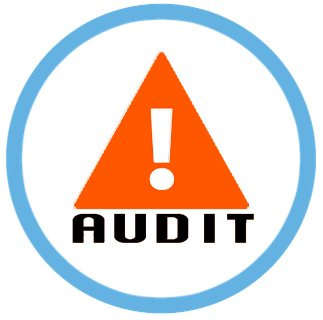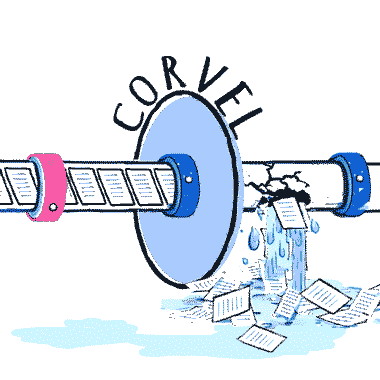Audit Complaints: Work Comp Providers Demanded Compliance in 2017

daisyBill providers stood firm in demanding timely, correct payments in 2017 by using our Audit Complaints* Tool to report payor noncompliance.
We always advocate for compliance on both sides of the workers’ comp transaction. That said, the consequences for provider violations are immediate and automatic, while the payors (insurers, self-insured employers, and their claims administrators) are subject to repercussions only when the Division of Workers’ Comp (DWC) takes action. This year, our providers submitted almost 3,000 Audit Complaints, alerting the DWC when claims administrators failed to follow regulations.
The data on this year’s violations help paint a picture of which infractions create the most friction for providers.
The Biggest Problems
To date, our providers submitted 2,993 audit complaints for the year.
Of those, the most common violation of the rules by far was plain old failure to respond, either timely or at all. Specifically, there were 1,655 complaints of overdue processing, of which 1,124 were total lack of responses to an original bill. One can only imagine the friction (and frustration) created when claims administrators ignore so many bills compliantly sent for payment.
Most importantly, providers submitted 763 complaints for failure to respond to original electronic bills. We can’t stress it enough: e-billing does away with “lost” bills. Proper billing software like ours provides automatic confirmation when a payor receives a bill electronically, so the provider has proof of submission.
Remember, California Labor Code 4603.4 states:
...payment for medical treatment provided or prescribed by the treating physician… shall be made with an explanation of review by the employer within 15 working days after electronic receipt” of an electronic bill.
With e-billing, there are simply no excuses.
While overdue processing dominated the list of offenses, there were other assorted failures to comply:
Complaint Category |
Audit Complaint Count |
Processing Overdue |
1655 |
Electronic Billing Noncompliant (EOR not remitted) |
490 |
Incorrect Denial |
417 |
Noncompliant EOR |
338 |
Penalty and Interest Due |
93 |
Of particular significance was the 93 complaints of failure to pay penalty and interest. Since the financial consequences for payor noncompliance are “self-executing,” payors are expected to voluntarily remit the appropriate fees to providers, presumably out of sheer contrition. To no one’s surprise, this voluntary payment doesn’t always materialize.
That’s why providers must be vigilant in insisting on proper penalties and interest payments, and be willing to submit audit complaints otherwise.
Payor Data
Bearing in mind that the biggest payors (those that process the greatest volume of our providers’ bills) are likely to see more incidents of noncompliance, some claims administrators offended more frequently than others. For example, Sedgwick Claims Management tops our list of payors by volume, processing over 14% of all bills. The third-party administrator also tops our list of offenders in 2017, with almost 400 complaints to date.
Processing a large volume of bills, though, is no excuse for poor compliance.
Note the continued good performance of Liberty Mutual. Besides being one of our fastest payors in terms of days to payment, the insurance behemoth had a relatively modest 43 complaints total this year. For an entity that processes roughly 5% of all our providers’ bills, that’s worth a nod of approval.
Besides Sedgwick, other frequent offenders included Zurich Insurance North America, York Risk Services Group, TriStar Risk Management, and AmTrust North America. Again, all of these payors are among our largest by volume — making incidents of noncompliance more likely, if not more acceptable.
Payor |
Number of Complaints Submitted |
Sedgwick Claims Management |
397 |
Zurich Insurance NA |
306 |
York Risk Services Group |
222 |
TriStar Risk Management |
218 |
AmTrust NA |
144 |
Also earning 3 figure’s worth of complaints were ESIS, Inc. (115) and Gallagher Bassett (107), with Athens Administrators (95) and AIG (98) coming in just shy of 100 complaints to date.
The unfortunate reality of work comp is that providers must actively defend their practices from friction-inducing payor noncompliance. As it stands, it’s up to those who deliver treatment to injured workers to hold employers, insurers, and claims administrators accountable. Knowing the rules, and acting when the rules are broken is a necessity, however burdensome.
That’s why we strive to make it easier for providers to cry foul when necessary. Ensuring compliance doesn’t only protect the provider, it makes the work comp system sustainable for all parties. We believe that’s a battle worth picking.
NOTE: The Audit Complaint form was updated in 2019. Access the updated form here: https://www.dir.ca.gov/dwc/Auditref.pdf
The Audit Complaints Tool is just one of the ways daisyBill helps providers protect their revenue stream. With tools for easy, compliant, traceable authorization, billing, and requests for review, we equip providers with what they need to get paid. Sign up for a free demonstration.
REQUEST DEMO
DaisyBill provides content as an insightful service to its readers and clients. It does not offer legal advice and cannot guarantee the accuracy or suitability of its content for a particular purpose.


.gif)

